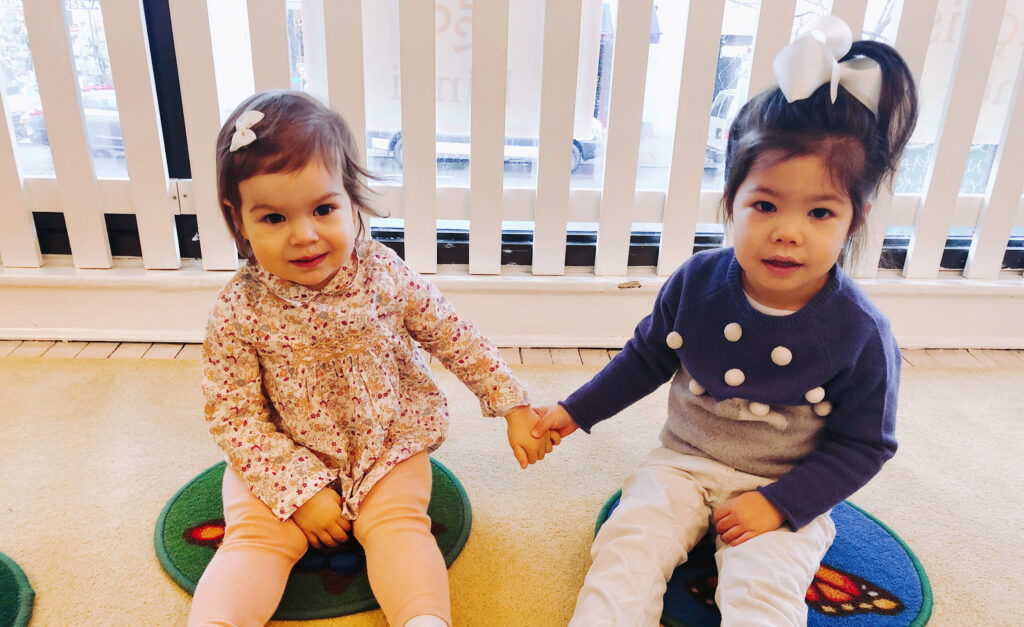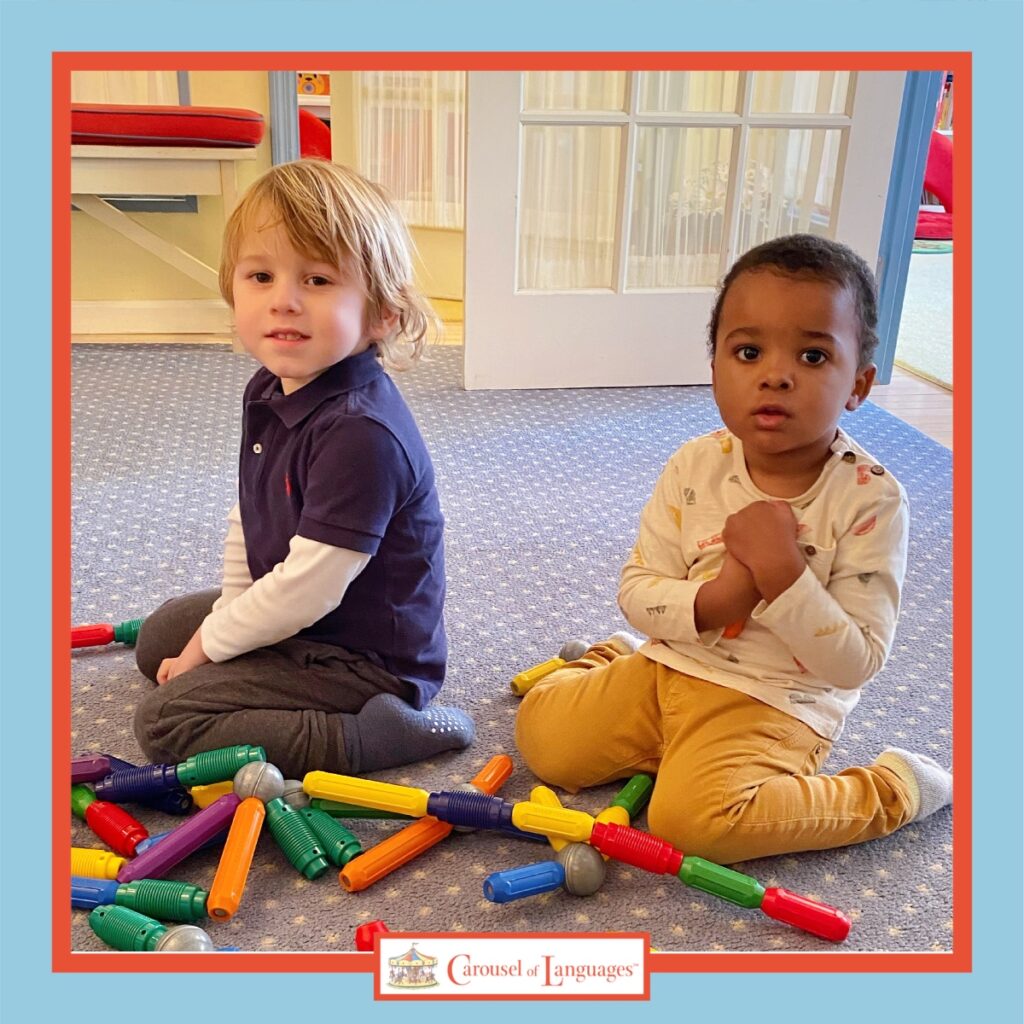
One of the key elements of social-emotional growth is learning to feel and show empathy.
What is empathy?
Empathy is the ability to recognize and share in other people’s feelings; to consciously put oneself in another’s place and imagine what they’re experiencing. It’s also the motivation to help when someone is in distress.
Children are born with the capacity to develop empathy, but it doesn’t just blossom naturally. Nurture plays an enormous role in the growth of an empathetic human being.
According to zerotothree.org, by around 6 months old, babies already recognize emotions in people they love, and begin using social referencing — responding to your emotional cues about a situation.
By 18-24 months, toddlers grasp that each person is an individual with their own thoughts, ideas, and feelings.
Be patient! Developmentally speaking, preschoolers still need quite a bit of time to grow into empathetic children.
Research has shown that engagement with diverse and multicultural groups increases empathy. Children become more empathetic when they discover all they have in common with other people.
⭐️⭐️⭐️
Many of the most impactful early lessons about empathy come in seemingly simple gestures and day-to-day interactions with your little one. There are many small but effective steps you can take in raising a compassionate, caring, conscientious child right from the start!
Here are 7 of the best ways to nurture the development of empathy in your preschooler:
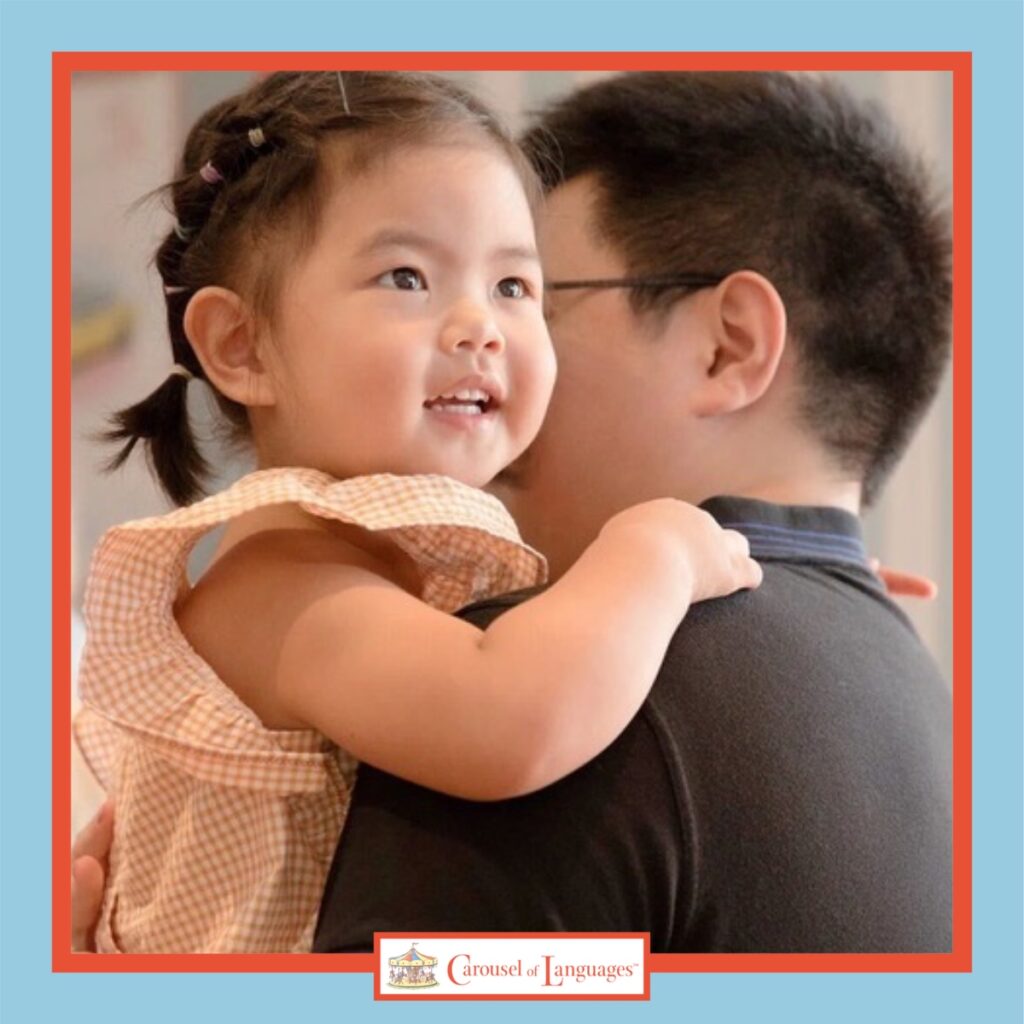
1. The most important way to teach your child empathy is to show your child empathy.
Attend to their physical needs, honor their feelings and validate them; respect their unique personality, and respond with individualized care.
- “Are you feeling shy? I understand. It can be hard to say ‘hi’ first. Hold my hand and we’ll go to the sandbox. I’ll help you talk to the kids who are playing together!”
Research has shown that children who feel secure and cared for, and have learned to regulate their own emotions, are more likely to show caring concern for others.
2. Talk about your day together, and listen intently.
- “What did you do at school that was fun?”
- “What was the hardest part of your day?”
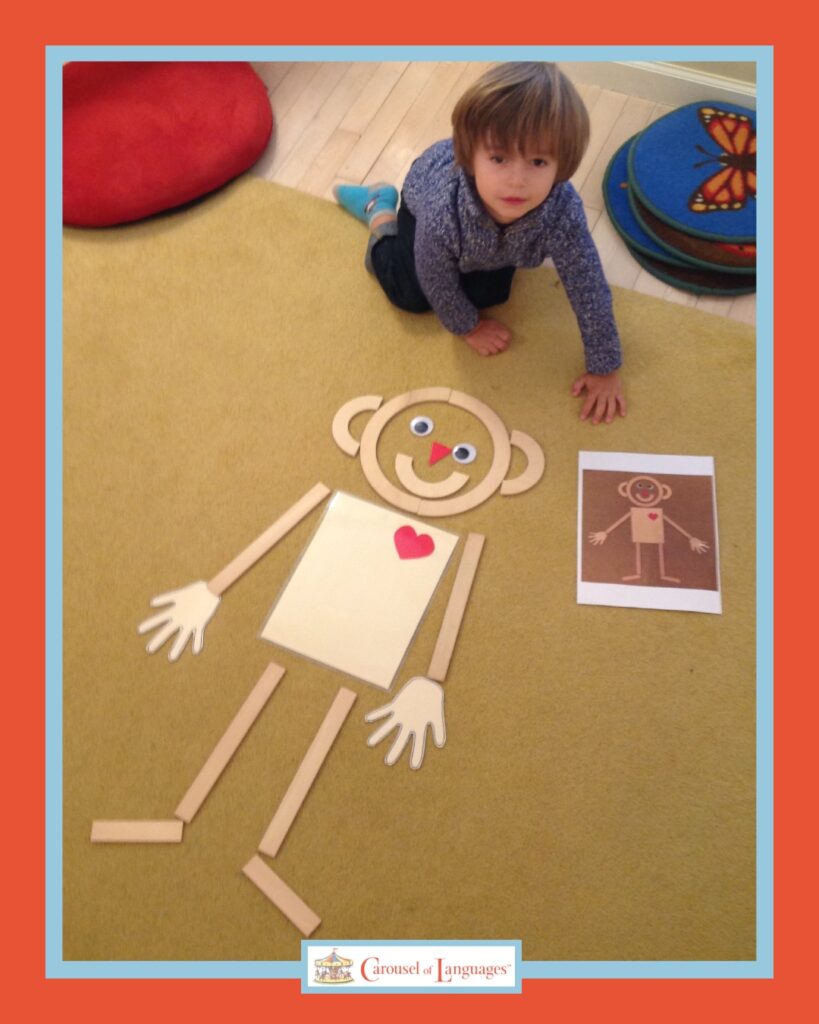
Speaking with ease and openness about feelings encourages your child to do the same and lets them know that feelings are a normal part of life.
3. Label emotions—your child’s and your own.
- “I know you’re sad that we had to leave the playground.”
- “I’m feeling a little tired and grouchy right now. I had a hard day at work.”
Validate your child’s feelings without always trying to fix things right away. This helps her learn to cope with emotions.
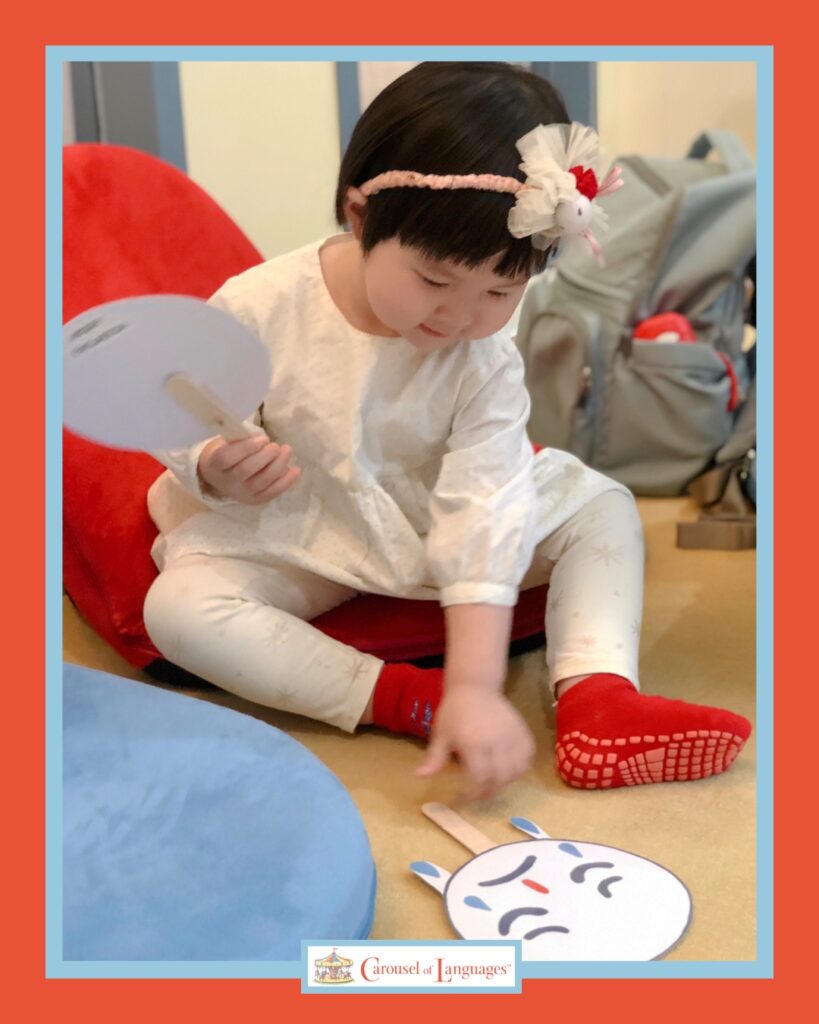
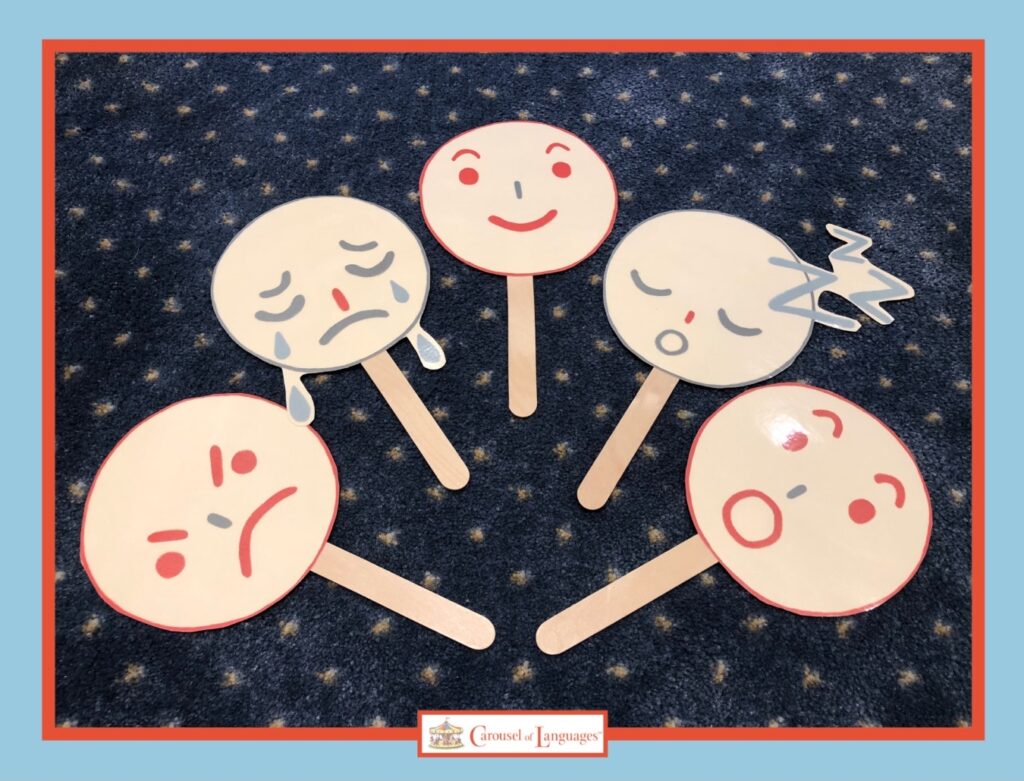
4. Teach your child healthy ways to handle and express her negative feelings.
- “I can see that you’re frustrated! But I don’t like when you hit me – that hurts! Let’s think of a better way to let me know you don’t want to put your sweater on.”
5. Praise compassionate, helpful behavior and point out acts of kindness that you witness.
- “Thank you for bringing me a Band-Aid when I hurt my finger! That was very kind.”
- “I loved how you shared your toy with your brother. That made him so happy.”
- “Wasn’t it thoughtful of that person to hold the door for us?”
6. Give your child opportunities to practice recognizing facial expressions and social cues. Help him imagine himself in another’s place.
- “That little girl on the swing seems upset. Why do you think she’s crying?”
- “Felix looked lonely this morning. Do you ever feel lonely? What makes you feel better? How can we help Felix feel included?”
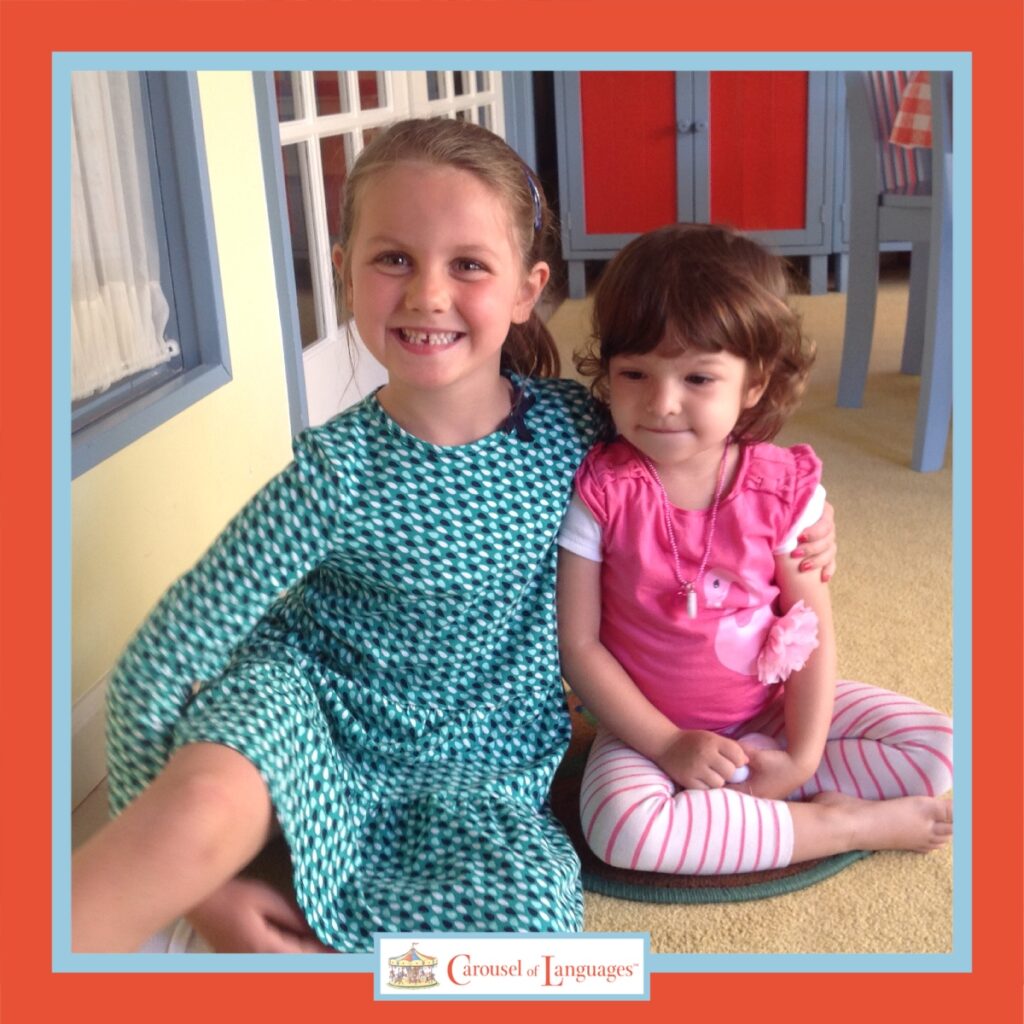
7. Model acts of kindness and caring for others—loved ones and strangers.
- “Grandma has a cold. Let’s call her to see how she’s feeling.”
- “We have new neighbors next door. Let’s take them some cookies to make them feel welcome!”
- Find small ways for your child to participate when you volunteer or do charity work.
⭐️⭐️⭐️
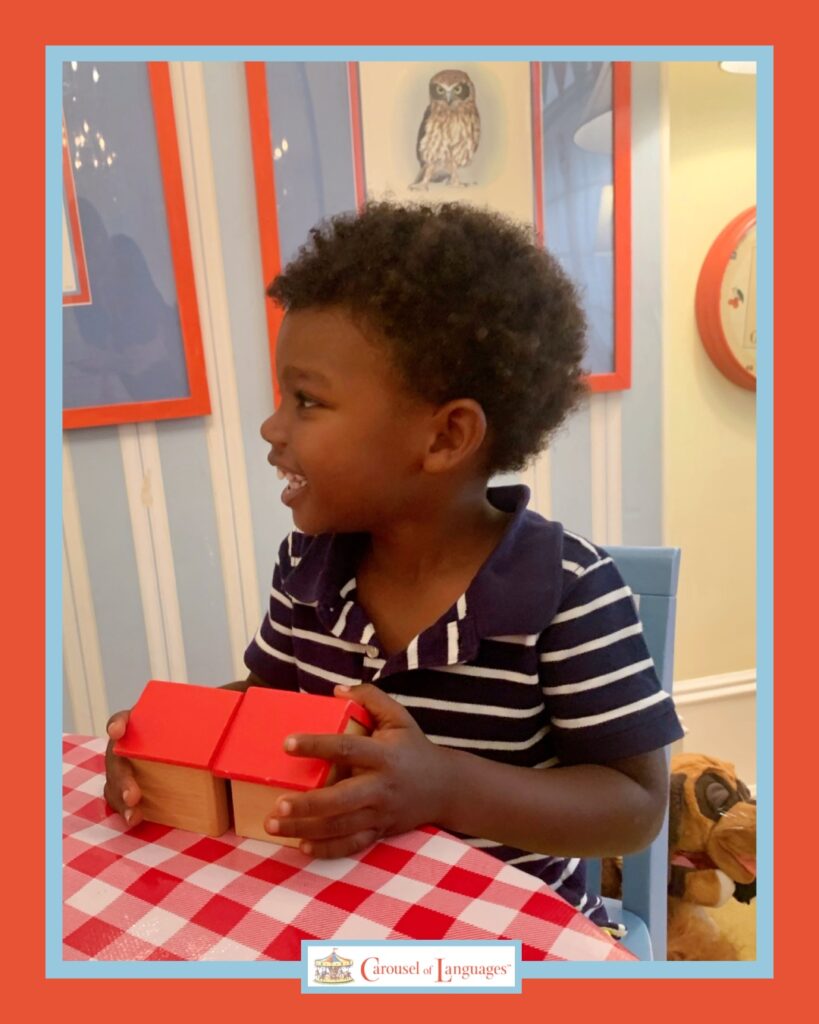
Foreign Language Learning and Social Emotional Growth at Carousel
At Carousel, early childhood foreign language learning is about much more than words. We focus on the whole child.
Many methods of nurturing social-emotional growth, including the development of empathy, are deeply embedded in our program.
It starts with an underlying philosophy, explains Carousel Founder, Patrizia Saraceni Corman.
“I’ve always believed that to introduce a child to beauty, of all kinds, is an act of love and respect for the child. In turn, children learn to love and respect the immense and diverse beauty all around them — people, arts and culture, nature, and of course, many languages!”
We lay the foundations for learning about empathy from the moment a child walks through our doors. We welcome every child with open arms, greet them by name, and cherish them as individuals. Children are ushered into the loving care of their teachers in a joyful, beautiful environment meticulously tailored to meet the needs and delight the senses of infants and toddlers.
Emotional intelligence and perspective-taking ability are reinforced throughout the Carousel curriculum with activities that teach about feelings, facial expressions, and body language, as well as through exploring other languages and cultures.

We practice taking turns and really listening to each other. When children feel heard, they can begin getting comfortable articulating their feelings and needs calmly. Through fun activities with expressive “emotion” masks and games like Mr. Potato Head, we learn to recognize facial expressions and interpret social cues. In dramatic play, children act out real-life situations involving feelings and needs of their own and one another’s, and learn to make sure everyone feels included. Songs and storybooks present endless opportunities to learn about diverse people and circumstances, and to interpret and discuss how characters are feeling.
We set a gentle, respectful tone for daily interactions among children and between teacher and student. We also look beyond the classroom, always aiming to instill awareness that each person is an integral member of a family, school, city, and the global community.
For little children, as for adults, it’s relatively easy to have compassion for those we know and love, but harder when someone seems unfamiliar, distant, or removed from our own experience.
Carousel’s joyful, play-based early foreign language exposure and exploration of diverse cultures can help foster an appreciation and respect for people who may seem different from ourselves or far away.
Together, we can nurture the next generation of empathetic children who grow into conscientious Global Citizens!
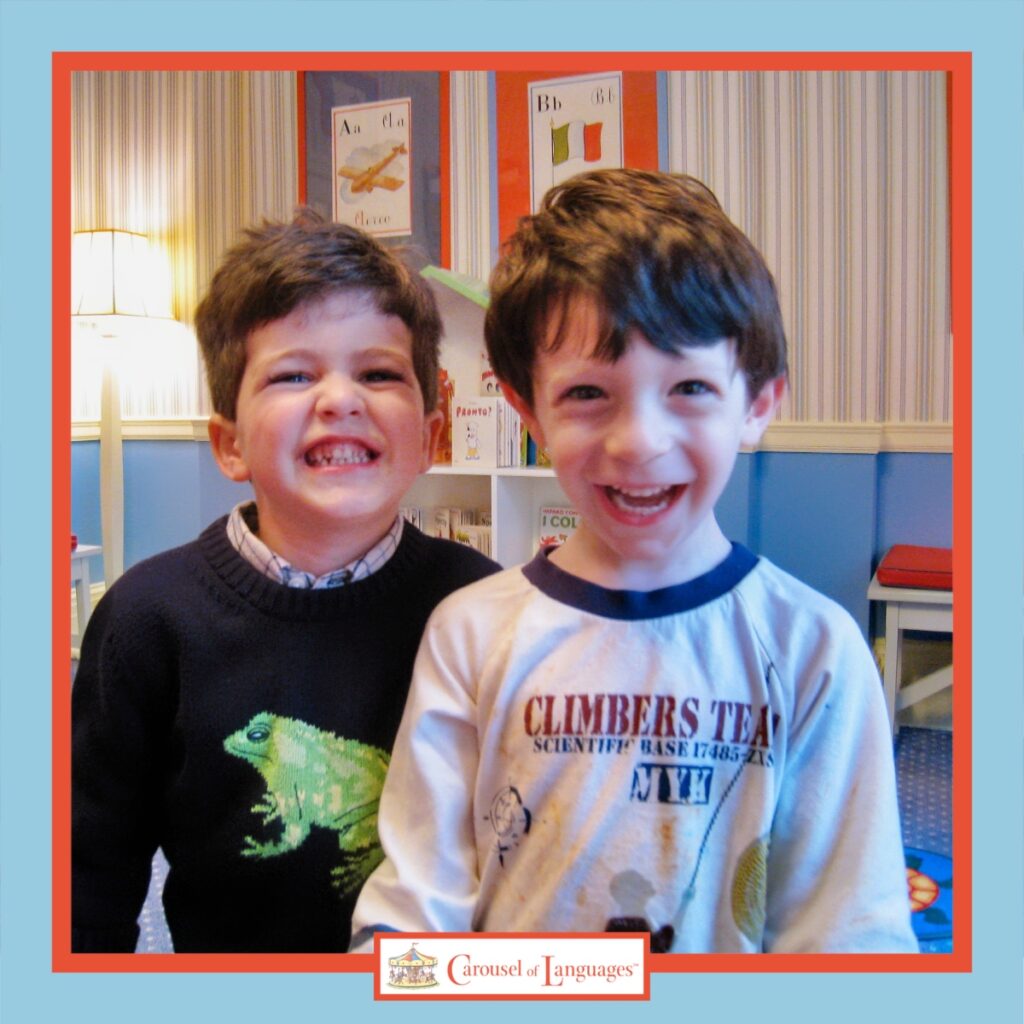
⭐️⭐️⭐️
Sources and Further Reading:
https://mcc.gse.harvard.edu/resources-for-families/5-tips-cultivating-empathy
https://www.babycenter.com/0_the-caring-child-how-to-teach-empathy-ages-3-to-4_65717.b
https://www.parentingscience.com/teaching-empathy-tips.html
https://www.psychologytoday.com/us/blog/peaceful-parenting/201812/the-secret-teaching-child-empathy
https://www.zerotothree.org/resources/5-how-to-help-your-child-develop-empathy
https://www.child-focus.org/news/ways-to-build-social-and-emotional-intelligence-in-your-children/



